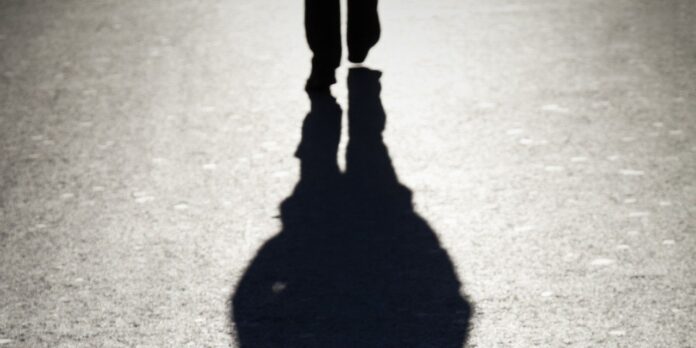Disclaimer: This article explores the topic of mental health, specifically one student‘s recent experiences.
Editor’s Note: If you are experiencing mental health issues, please refer to the numbers below.
National Suicide Prevention Lifeline: 800-273-8255
SAMHSA’s National Helpline – 1-800-662-HELP (4357)
I really intended to start this piece with some bold, defiant words, expressions of anger at what’s been done to us. A sort of backhanded remark about how we all know how we’re feeling, and that there’s no need to go into emotional specifics, since we’ve already heard the story too many times before anyway… It would serve as a way to jump directly into an indictment of the administration, laugh in the face of desperation, and proclaim a path forward, out of the dark.
But, I’ve decided against that. The pageantry of such an opening would exhaust me, and detract from why I chose to write this.
I am not an unhappy person. Throughout all of high school, even through the toughest moments, I never considered myself depressed or in need of outside emotional support. Moments of sadness were not foreign to me, but they came and went, and my overall demeanor remained. At Georgetown, life improved. New friendships, new independence, new goals and aspirations… hope was the defining characteristic.
At the risk of sounding cliché, this changed for everyone with the pandemic.
Hope, with time, eroded away into despondency. Isolation, confinement, and an ever-increasing death toll, a grim statistic that so often lashed out beyond the confines of the page to strike down those we held dear, weighed upon us all. There was no room for anything else in our lives except the pandemic, and the expectation that, each day, things would worsen. People would suffer. People would die. Friends, relatives, entire communities perishing in droves, all as we waited for something, anything, to change.
I was anxious to return to a consistent workload during the fall semester. Some semblance of normalcy, and new social interaction, however manufactured, seemed practically heaven-sent, taking us away from the hell that went on outside. The spring semester had ended haphazardly, but one figured that, over so many months, a consistent effort had been made to improve our quality of life after so much despair and tragedy.
I need not explain how foolish this assumption was.
The burden became twofold – to juggle the pain of isolation with an excessive, and ever-increasing, amount of work. Attempts to make our lives easier through an altered workload were illusive at best. The administration, eager to point out how frequently it had recommended the professors change their ivory-tower-tinged habits, did nothing more than provide the number for its psychiatric services. It is worth mentioning that this is the same strategy it had employed before the pandemic anyway.
I can say now that I have experienced depression. To look outside each day and see a sky perpetually of gray; to experience the air hang stagnant and dead within your lungs; to feel a weight press against your chest, ever compressing your heart, your soul, your very core of being; to suffocate as you breathe, to drown above water; a tale told by an idiot, full of sound and fury, signifying nothing…
Through all this, by the grace of God, I still persevere, and know life will go on in the future. But my well-being is inconsequential to my point.
There are those of us who felt this way before the pandemic. But now? I shudder to imagine. I’ve heard that the number of those considering suicide has skyrocketed from our situation. We mourn, we live in constant anxiety, and we are alone. I do not suggest a return to life as usual. We should have learned our lesson by now. Patience is the answer. But with our patience, and new, involuntary lifestyle, we must consider some alternative to improve our mental state.
But, herein lies the problem — there is only so much we can do ourselves.
The university must act to address this. It is our primary stressor. I know not of the specifics, nor do I have the time, energy, or the resources to propose alternatives, thanks to what’s still to come of this semester. All I know is this – if no change is made, pandemic itself aside, we will worsen. Our health will suffer regardless of whether we ever get in contact with the virus. And Georgetown will be culpable.
The worst of this is that it may take a suicide for Georgetown to see reason. Someone may have to take their own life before any action is taken. It won’t be me, so worry not, but it could be someone you know and love. (If you think it to be you, persist. Do not give up. It’s not worth it. You don’t know me, and I don’t know you, but you matter, and your life matters. We’ll get through this together, even if you don’t know me.) I fear that the only way Georgetown will change is having to respond to such a tragedy. And even then, they may only write a hasty obituary, deny responsibility, and continue business as usual.
I have no policy recommendations for this piece. I have no suggestions about what we can do to stop this. I have no idea if anyone will see this, or care. But it must be written. Somebody has to say something. I am angry, miserable, drained, frustrated, and fearful for my friends and peers.
Somebody has to do something. We can’t go on like this much longer.
Disclaimer: The views and opinions expressed in this article are those of the author(s) and do not necessarily reflect the official or personal position of the Editorial Board, Contributors, or Business Staff of The Georgetown Review.












